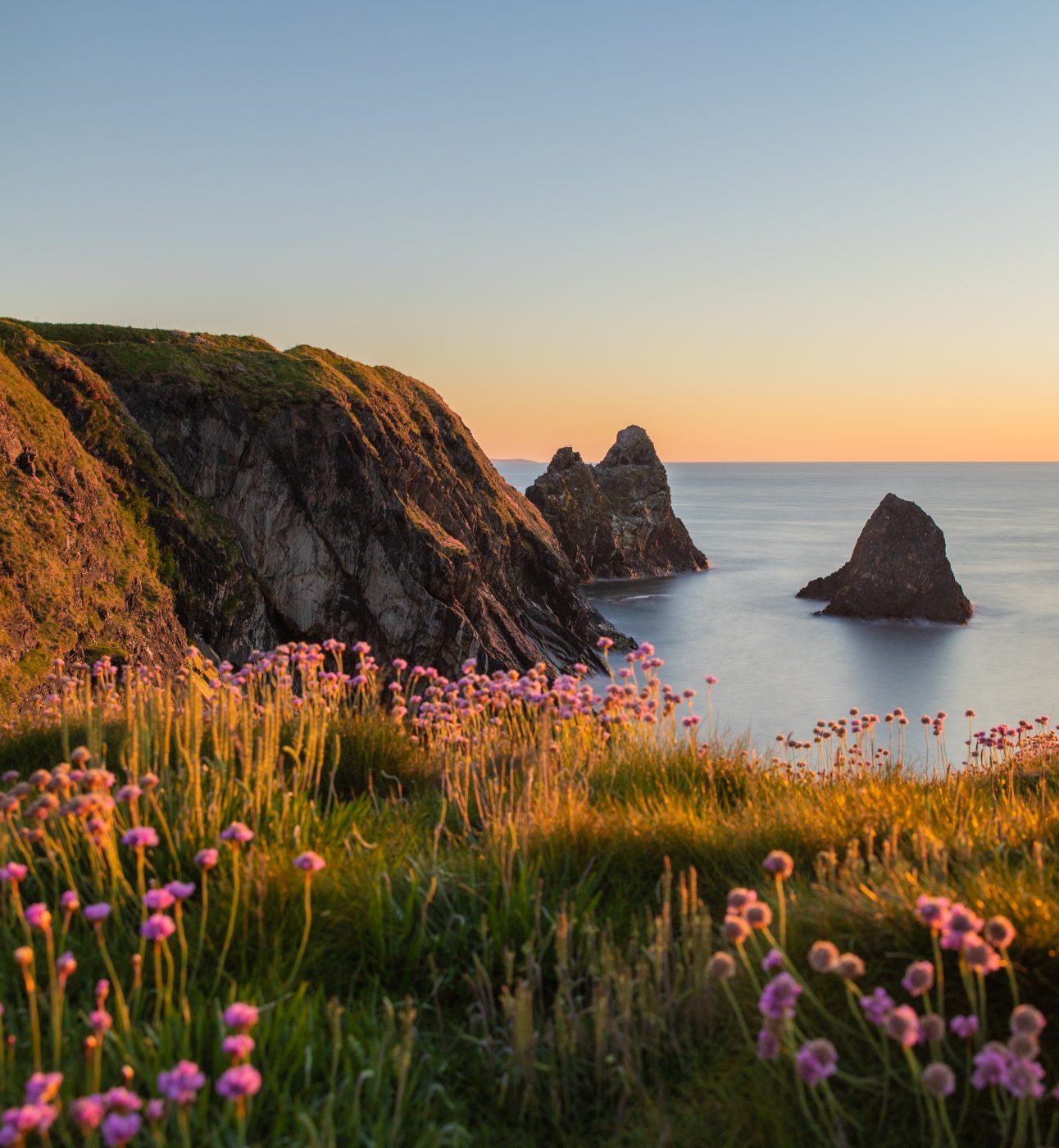
Be the first to receive Viewpoint
Our Friends receive Viewpoint 6 months before it's available to the public, become a Friend today
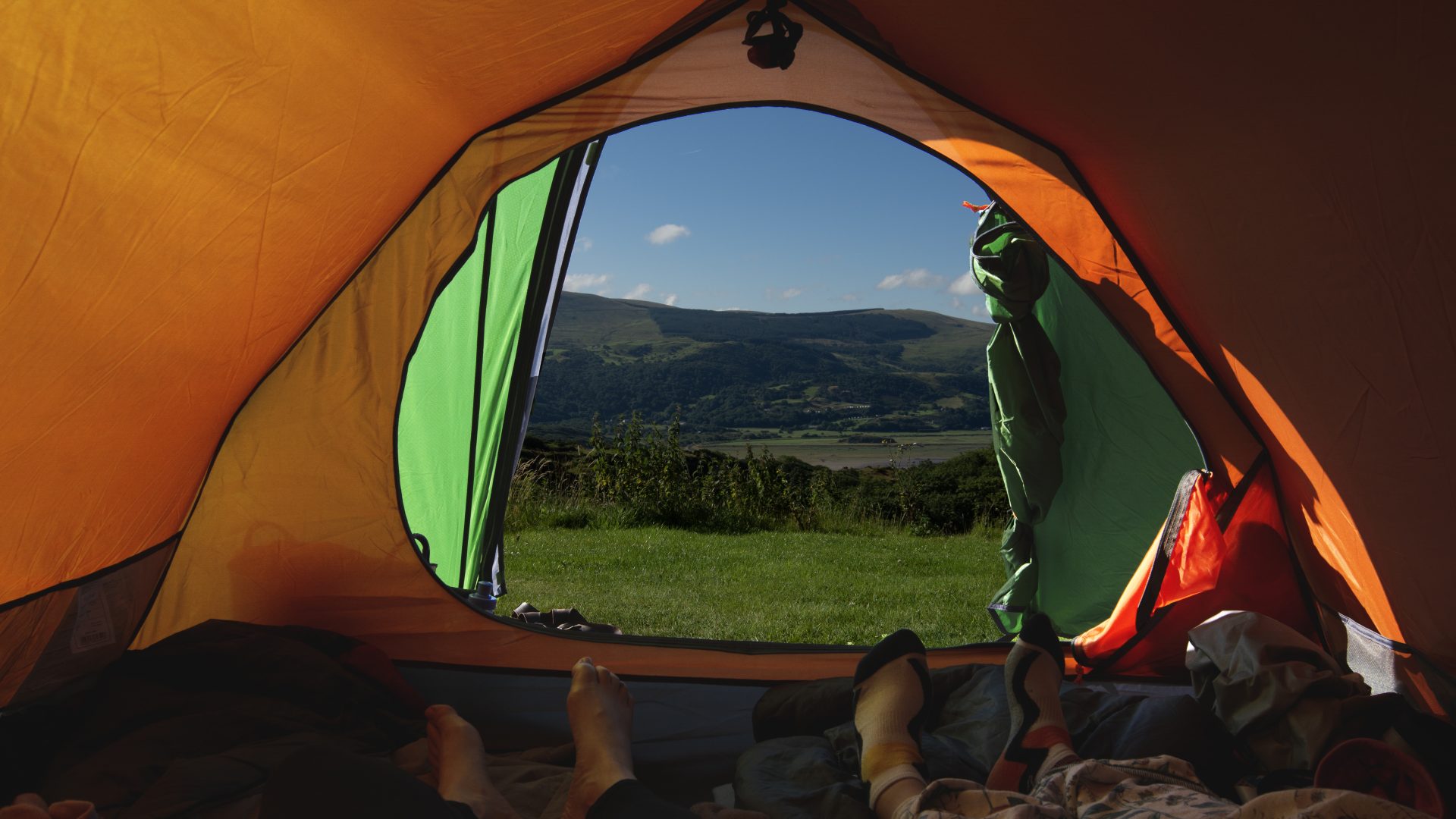
Published: 29 October 2024
Under a post on the Facebook page ‘UK Wild Camping’, a man commented:
“Freeloading scum”.
The post in question was a photo by a woman of a beautifully pitched site, clearly excited about her first wild camping experience with her sister, with the phrase “leave no trace” and a heart emoji. Such a disproportionate and aggressive response could be dismissed as trolling, but it merits some analysis because truthfully, it reflects a pervasive British attitude. You hear stories time and again of angry confrontation — of bike-campers being sprayed with slurry, intimidation and altercation — all in reaction to folk who step off the beaten path and go for a wild camp or a discreet trespass.
But what’s the root cause of offense in these kinds of cases? That wild camping is perceived as essentially a ‘free’ activity (discounting costs of equipment, travel, training) is deemed morally reprehensible by some. Why? A night under the stars (or cloud) on the edge of a field doesn’t actually siphon off the fruits of anybody’s labour. You’re just making brief use of a bit of land which has existed there for quite some time, and it’s a use that’s demonstrably good for us! For a landowner to accuse a wild camper of freeloading in cases like this is to try and reap what they never sowed. But in a world where nearly every single part of our lives is commodified, from the water we drink, to higher education, dental care, our most fundamental needs, it’s not so surprising.
Our National Parks, where people make a connection with nature and with the countryside, often for the first time, were not created with profit in mind, but to conserve nature and to provide outdoor recreation for all. But today we see increased financial barriers to nature everywhere. More pay and display car parks, fines and clamping for van camping, the looming sale of national assets such as Coed y Brenin, and always, always the message – “if you’re here, you better be ready to pay”. We’re at a place where landowners approach children doing their Duke of Edinburgh demanding cash on the spot for a night spent on a boggy hillside. What service are they paying for that the landowner provided other than a good fright in the dark?
In Dartmoor a hedge fund manager levies his resources to push off campers, ostensibly so that he can profit from the land via upmarket pheasant shoots, deer stalking and expensive holiday lets (with the endeavour allegedly part funded by shares in a company accused of driving up the price of insulin). Talk about commodification. And it’s not just limited to the rural – this year, the Bathurst Estate (with a fortune deriving from the slave trade – another vile commodity), decided they would introduce paid electronic turnstiles for entry on Cirencester Park, previously open to the public for centuries. These big examples shock us, but we should pay more attention to the small confrontations taking place every day across England and Wales as people simply try and connect with the landscape. “Freeloader” “Cheapskate!” “Moocher!” “LEECH!”
Not limited to purely financial barriers, these types of self-righteous confrontations also inherently engender discrimination: different people are undoubtedly treated differently in the same circumstances – any person belonging to a minority venturing into these places will attest to this. Some people come ready for confrontation, armed with counter arguments or citing trespass as just a civil offense. Others will feel less safe and have to expend much more energy in a confrontational situation, which discourages participation from demographics already underrepresented in the outdoors. Financial barriers unfairly discourage visitors who already face the greatest barriers.
We’ve allowed ourselves to be socialised into a commodification mindset where every action has to be a financial transaction, and the end result is a rotten culture with more in common with a monopoly board than a healthy society.
The truth is that access to nature should be a right, not a privilege to be bought and paid for by those who have the means. We should encourage support for local economies – of course – but institutions should recognise that commodification of the outdoors actively harms us all.
O dan bost ar dudalen Facebook ‘UK Wild Camping’, dywedodd dyn:
“Freeloading scum”.
Roedd y post dan sylw yn llun a bostiwyd gan fenyw o wersyllfa hardd, yn amlwg yn gyffrous am ei phrofiad gwersylla gwyllt cyntaf gyda’i chwaer, gyda’r ymadrodd “leave no trace” ac emoji calon. Gellid diystyru ymateb mor afiach ac ymosodol fel trolio, ond i mi mae’n haeddu rhywfaint o ddadansoddi oherwydd mewn gwirionedd, mae’n adlewyrchu agwedd dreiddiol Brydeinig. Rydych chi’n clywed straeon dro ar ôl tro am wrthdaro ffyrnig, neu am wersyllwyr beic yn cael eu chwistrellu â slyri, eu dychryn a’i haflonyddu – i gyd mewn ymateb i bobl gyffredin sy’n mentro oddi ar y llwybr ac yn mynd i wersylla gwyllt neu’n tremasu’n gynnil.
Ond beth yw gwraidd y tramgwydd mewn achosion fel hyn? Mae’r ffaith fod gwersylla gwyllt yn cael ei ystyried yn ei hanfod yn weithgaredd ‘am ddim’ (gan ddiystyru costau offer, teithio, hyfforddiant) yn cael ei ystyried yn ei gwneud yn foesol gerydd gan rai. Pam? Dydi noson dan y sêr (neu gwmwl) ar ymyl cae mewn gwirionedd ddim yn dwyn ffrwyth llafur unrhyw un. Dim ond gwneud defnydd byrhoedlog o lwmp o dir sydd wedi bodoli yno ers cryn amser, ac mae’n ddefnydd sy’n amlwg yn llesol i ni! Mae tirfeddiannwr sy’n cyhuddo gwersyllwr gwyllt o fod yn ‘freeloader’ mewn achosion fel hyn yn ceisio medi’r hyn na wnaethant erioed ei hau – ond mewn byd lle mae bron pob rhan o’n bywydau wedi’i droi yn nwydd i’w werthu a’i brynu, o’r dŵr rydyn ni’n ei yfed, at addysg uwch, gofal deintyddol, ein hanghenion mwyaf sylfaenol, nid yw felly’n syndod.
Cafodd ein Parciau Cenedlaethol, lle mae pobl yn ymgysylltu â natur a chefn gwlad, yn aml am y tro cyntaf, ddim eu creu ag elw mewn golwg, ond er mwyn gwarchod natur a darparu hamdden awyr agored i bawb, ond heddiw mae rhwystrau ariannol cynyddol rhag ymwneud â natur ym mhobman. Mwy o feysydd parcio talu ac arddangos, dirwyon a chlampio ar gyfer gwersylla mewn fan, bygythiad gwerthu rhai o’n asedau cenedlaethol mwyaf gwerthfawr, fel Coed y Brenin, a thrwy’r amser, o hyd ac o hyd, y neges – “os ydych chi eisiau bod yma, paratowch i dalu”. Rydyn ni mewn byd lle mae tirfeddianwyr yn mynd at blant sy’n ceisio am wobr Dug Caeredin i hawlio arian parod yn y fan a’r lle am dreulio noson ar ochr bryn corsiog. Pa wasanaeth sy’n cael ei ddarparu iddynt heblaw am fraw yn y tywyllwch? Yn Dartmoor mae rheolwr cronfa rhagfantoli yn defnyddio ei adnoddau i wthio gwersyllwyr i ffwrdd o’i dir, yn ôl pob golwg fel y gall elwa o’r tir drwy saethu ffesantod, stelcian ceirw a gosod llety gwyliau drud – gyda’r holl beth yn debygol o fod wedi’i ariannu’n rhannol gan gyfranddaliadau mewn cwmni a gyhuddir o gynyddu pris inswlin. Sôn am fasnach. Ac nid yw wedi’i gyfyngu i’r byd gwledig yn unig – eleni mae Stad Bathurst sef perchnogion Parc Cirencester (diolch i ffortiwn sy’n deillio o fasnach caethweision – nwydd ffiaidd arall), a fu’n agored i’r cyhoedd ers canrifoedd, wedi penderfynu cyflwyno gatiau electronig taledig ar gyfer mynediad. Mae’r enghreifftiau mawr fel hyn yn ein synnu, mae’n bwysig talu mwy o sylw i’r gwrthdaro bach sy’n digwydd bob dydd ar hyd a lled Cymru a Lloegr wrth i bobl geisio cysylltu â’r dirwedd. “Freeloader!”. “Cheapskate!” “Moocher!” “SLYWAN!”
Yn ogystal a rhwystrau ariannol, mae’r mathau hyn o wrthdaro hunangyfiawn hefyd yn anochel i achosi gwahaniaethu: heb os, caiff gwahanol bobl eu trin yn wahanol o dan yr un amgylchiadau – bydd person sy’n perthyn i leiafrif sy’n mentro i’r lleoedd hyn yn dyst. Mae rhai pobl yn dod yn barod i gwffio, edi’u harfogi â gwrthddadleuon neu’n nodi tresmasu fel trosedd sifil yn unig. Bydd eraill yn teimlo’n llai diogel ac yn gorfod disbyddu mwy o egni mewn sefyllfa wrthdrawiadol, sy’n annog pobl i beidio â chymryd rhan, o ddemograffegau sydd eisoes yn cael eu tangynrychioli yn yr awyr agored. Mae rhwystrau ariannol yn atal ymwelwyr sydd eisoes yn wynebu’r rhwystrau mwyaf yn gyffredinol.
Rydyn ni wedi caniatáu i ni ein hunain gael ein cymdeithasu i feddylfryd nwyddol lle mae’n rhaid i bob gweithred fod yn drafodiad ariannol, a’r canlyniad yn y pen draw yw diwylliant pydredig gyda mwy yn gyffredin â bwrdd monopoli na chymdeithas iachus.
Y gwir yw y dylai mynediad at natur fod yn hawl, nid yn fraint i gael ei phrynu a thalu amdani gan y rhai sydd â’r modd. Dylem annog cefnogaeth i economïau lleol – wrth gwrs – ond fe ddylai sefydliadau gydnabod bod troi’r awyr agored yn nwydd i’w brynu a’i werthu yn gwneud niwed mawr i bob un ohonom.

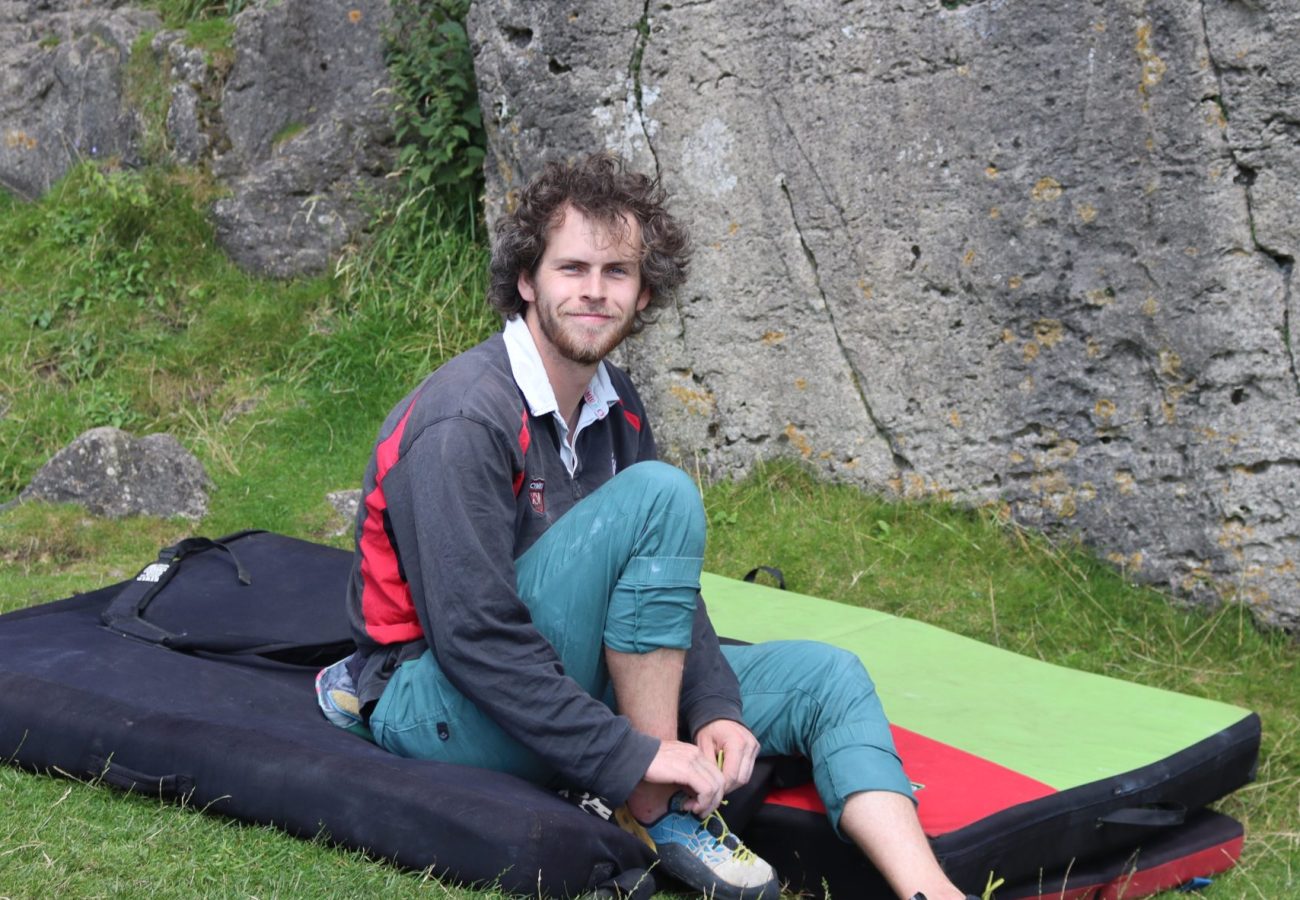
Eben Muse is a Campaign for National Parks Ambassador and Campaigns and Policy Officer with the British Mountaineering Council. Eben has always had a close relationship with National Parks as he grew up on the edge of the Eryri National Park in Dyffryn Nantlle.

Our Friends receive Viewpoint 6 months before it's available to the public, become a Friend today
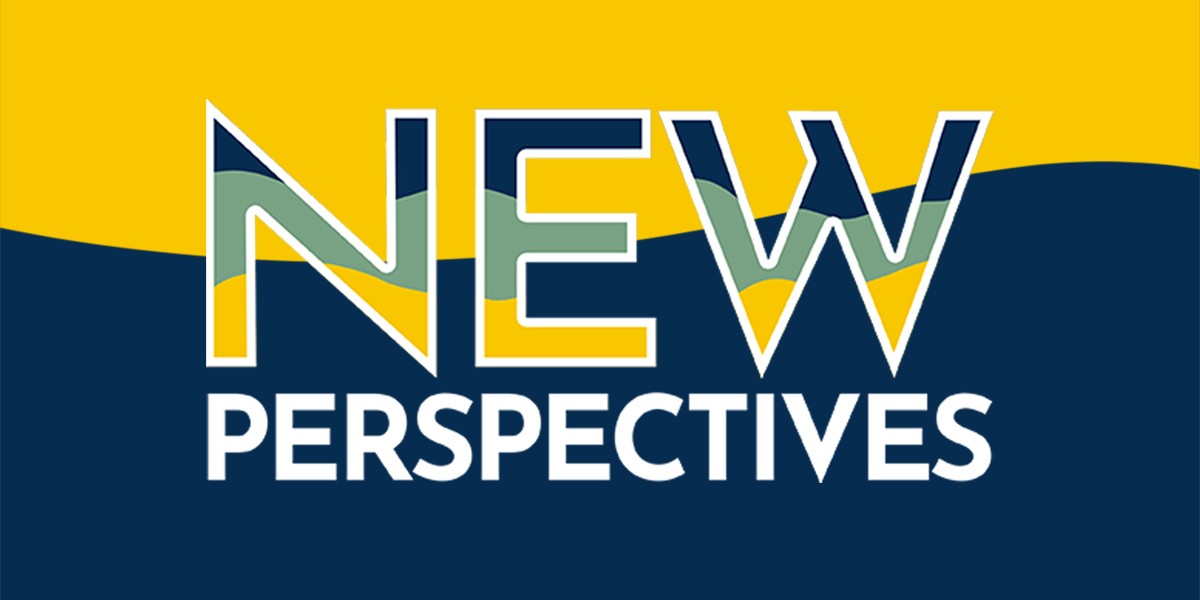
We offer grants to young people who want to develop their communication and storytelling skills and share their stories of National Parks
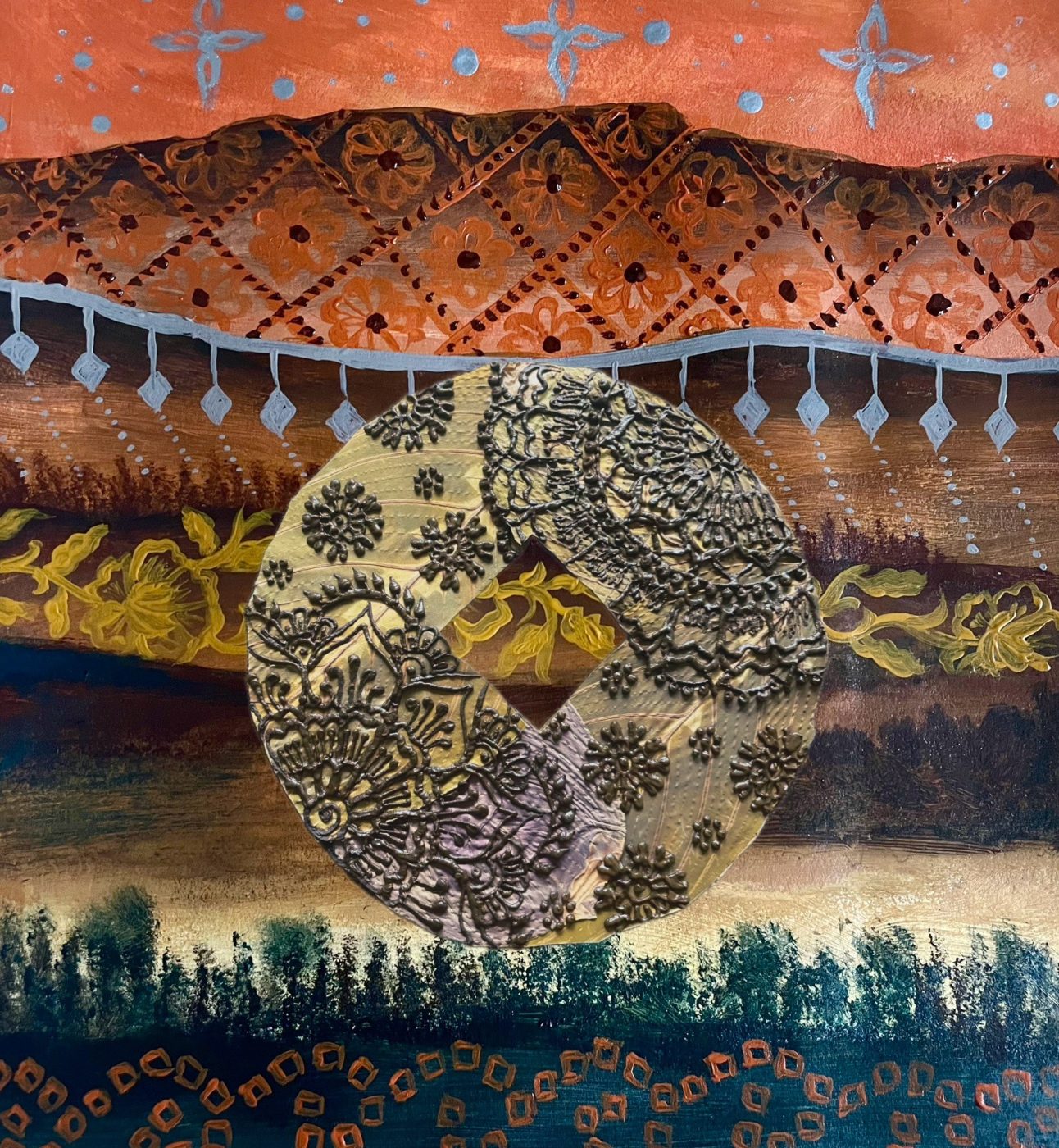
This special edition of Viewpoint is made up entirely of contributions from young people. Thank you to lottery players for making this issue possible.